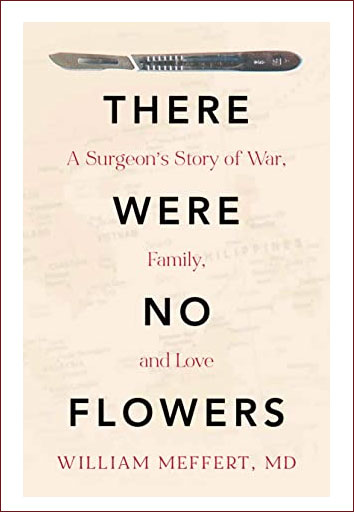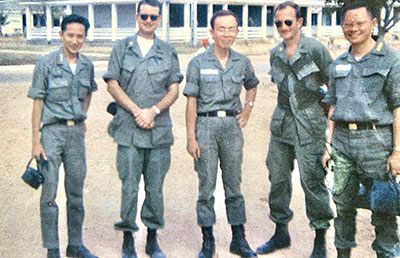Book

William’s book, There Were No Flowers, is available in soft cover and kindle form. It may be downloaded from Amazon or ordered from your favorite book dealer.
- ASIN : B0B6LFSJ3F
- Publisher : WGM Publishing House (September 27, 2022)
- Publication date : September 27, 2022
As a medical student, I recited the Hippocratic Oath. Standing wide-eyed with 100 other new doctors, innocent, even ignorant, I held my hand high. First Do No Harm, the 1962 class of Yale Medical School. It was simple. Problems were distant faraway dreams. But six years later, I was a blood and sweat soaked thoracic and vascular surgeon in a field hospital in Vietnam, waiting while orderlies scooped blood from the operating room floor with snow shovels. What I saw there changed the course of my life. If I do my job right, this book will change yours too. I’m an old man now, and I know the world doesn’t need more Vietnam stories people have seen on TV a thousand times. But these stories are uniquely about surgeons facing serious problems alone, without preoperative information. No one else was there to offer advice.

This is a book about what happens when you realize, as a surgeon, you are often responsible for people’s lives and are forced to make decisions that will save or end their lives. It’s a book about serious injuries and vascular closures demanding urgent, emergency surgery and deciding whether the unconscious patient would want to be saved only to be seriously debilitated or whether they would prefer not to live that life. What could we surgeons know about their thoughts, their family desires and support? In war or civilian emergencies, we could not speak with unconscious patients or to their families who were often thousands of miles away and still thought their loved ones were healthy and safe from harm. These surgeons must make life and death choices for patients they have never met. It’s about what happens to surgeons who must make these decisions and, afterward, can never forget what happened. It explains why surgeons do not talk about war, or major trauma except to those who have experienced the uncontrolled hemorrhage of severe trauma; those who have been blinded by blood splashing to their face or felt blood soaking scrub suits and experienced spongy clots drying between their toes. No notes or diaries are necessary. Most of us can never forget what happened.
You will meet the patients and their doctors in emergency rooms; go with them to the operating rooms where you look over the surgeon’s shoulder while attempts are made to save patients’ lives and repair injuries perhaps never seen before. You witness the surgeon’s thought process during surgery and see the results of the decisions that are made.
This book shows rather than tells what happens. It is written by a surgeon whose father was a trauma surgeon in World War II, grew up in a surgical family, worked in many countries with trauma patients and, despite many vivid memories, remains optimistic about people and reverent about life.